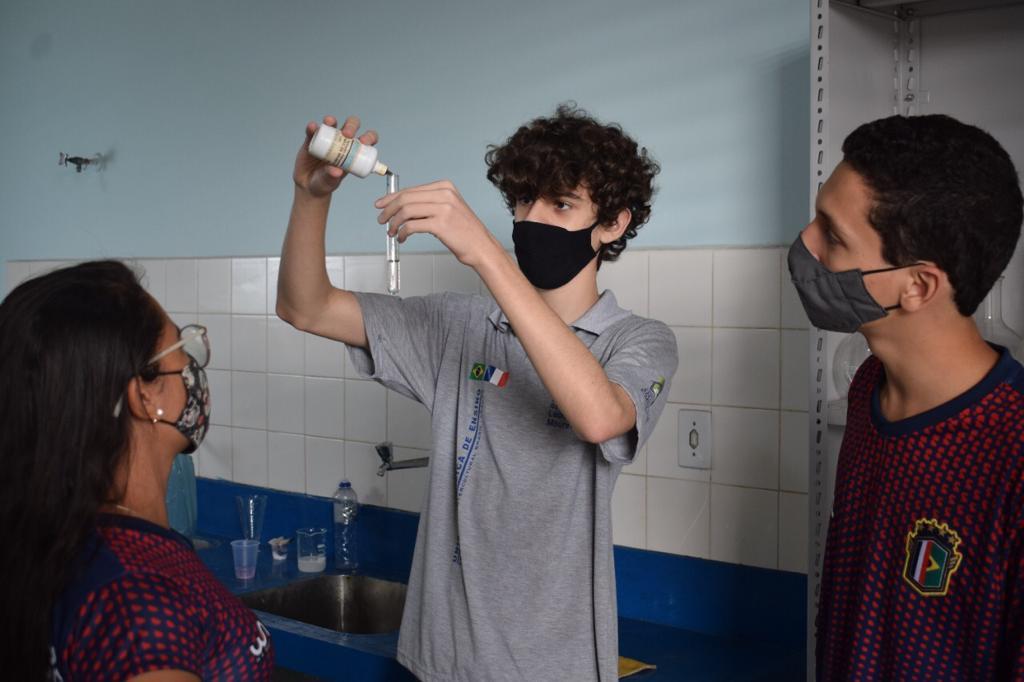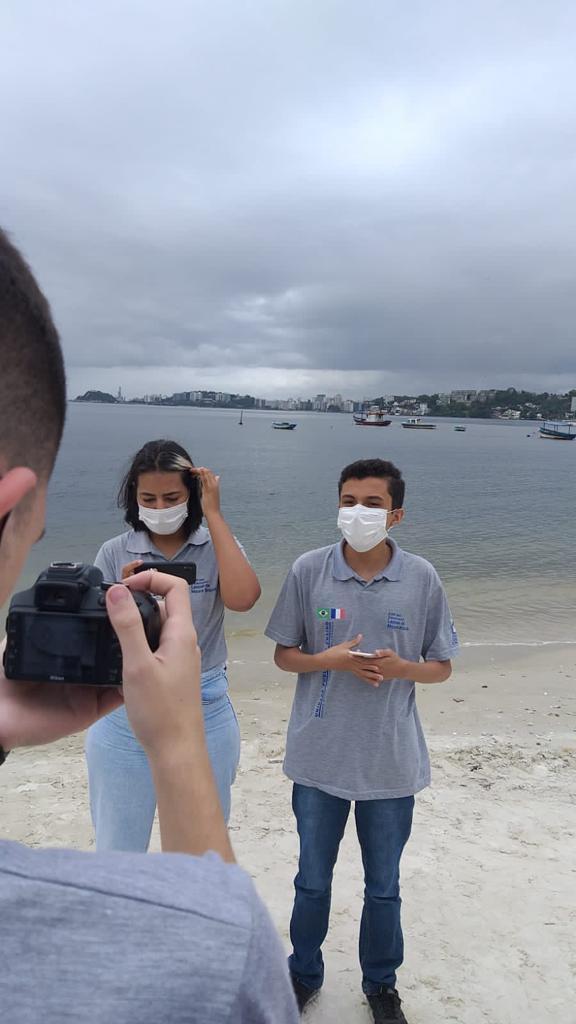NXplorers students from Brasil-Franca School, situated near Guanabara Bay, took matters into their own hands to change the way their community discards cooking oil by transforming it into soap. They collaborated to create a sustainable solution to the waste crisis in their community and work towards the UN's Sustainable Development Goals (SDGs): clean water and sanitation and life below water.
The quantity of waste cooking oil being disposed of along the bay damages the wildlife consistently. The United States Environmental Protection Agency found that marine life is being suffocated and breeding has been negatively impacted. The oil can lead to long lasting effects on the environment. The team saw the effects in their area firsthand, including a greasy pipe network, numerous insects being attracted to the oil, and polluted sea water. The bay has long been a refuse site for waste and sewage, from both domestic and industrial sources. The result of this has been an extreme loss of marine life in recent years.
The aim of the project for this NXplorers team was to promote a sustainable way of thinking, and increase awareness of the appropriate disposal of used oil. Workshops are being planned to teach the local community how they can harness the waste and transform it into a useful product.
Rethink problem solving
Utilising NXplorers tools, such as the Connections Circle and Perspectives Circle, the change-over-time graph and the 'If...then' chain. The students researched appropriate solutions and overcame challenges faced when working as a team to create a comprehensive plan and deep understanding of the problem. They quickly got to work to help save the surrounding water which they describe as a "fundamental asset for society".
Relearn project skills
The NXplorers students said that the project and toolkit taught them "about teamwork, promoting personal growth, and preparing for the labour market." This is a clear demonstration that the project requires not just scientific knowledge, but also personal and transferable skills that are essential for the students' futures.
Once they had developed their plan, the students collected waste oil from their community and tested it with caustic soda at school; the process was not without hazard as the chemical product can cause severe burning reactions, so safety was key. Once the mixture was left to rest for 24 hours, the soap had been produced. The group found that this soap could then be used as hand wash to keep families sanitised.

Readdress a global issue
The NXplorers students of team L'Atelier Durable presented their project in a documentary-style video to show the breadth of work at each stage of the project, the challenges faced as a team, the cost of the materials in the experiment as well as the recipe for making 'Oil Soap'.
The team's short documentary is relevant to many parts of Brazil and indeed the rest of the world. There has been a similar initiative conducted in Caxias do Sul called 'Óleo parceiro Bi-Rentável' meaning 'Bio-Profitable partner oil'. That initiative also collects oil in the region for safe oil disposal, demonstrating this is a practical solution to a growing societal problem.
Brazil isn't the only country with a domestic waste problem. In many developing countries, water contamination is a serious issue. In India it is a punishable offence to dispose of hazardous materials such as cooking oil into bodies of water, however, many households do not see an easy or convenient alternative.
Conclusion
Given the results that team L'Atelier Durable achieved, perhaps one day cooking oil collection will be widely encouraged by local authorities and local projects will be put in place to convert it into a useful byproduct. With the help of workshops for the public, communities could learn to safely dispose of cooking oil, much like those the team from L'Atelier Durable will be running their local community.

Despite facing many challenges, our dedication allowed us to accomplish our goals. We are thankful for taking part in a project of such magnitude and feel like we were able to contribute to its success.
How This Project Contributes To The UN SDGs
6. Clean water and sanitation
This solution encourages communities to work together to donate waste cooking oil and help make the water safer for wildlife, and produce a product everyone can use.
12. Responsible consumption and production
This solution promotes the message of proper waste disposal, making the community think about their consumption of oil and the production of waste that can cause damage in the sea.
13. Climate action
This solution takes action against climate change by preserving the habitats in the bay and helping in the process of cleaning the water.
14. Life below water
This solution helps to save the lives of marine wildlife by cutting down the pollution infecting their habitat.

Diagram of the United Nations’ Sustainable Development Goals numbered in a large circle, each with a smaller diagram below to represent the specific Development Goal. All of the Development Goals are faded, apart from four of them:
6. Clean water and sanitation
12. Responsible consumption and production
13. Climate action
14. Life below water
Within the circle there are three circles in a triangle formation reading ‘Energy’, ‘Water’ and ‘Food’, with arrows to show how they are all interconnected.